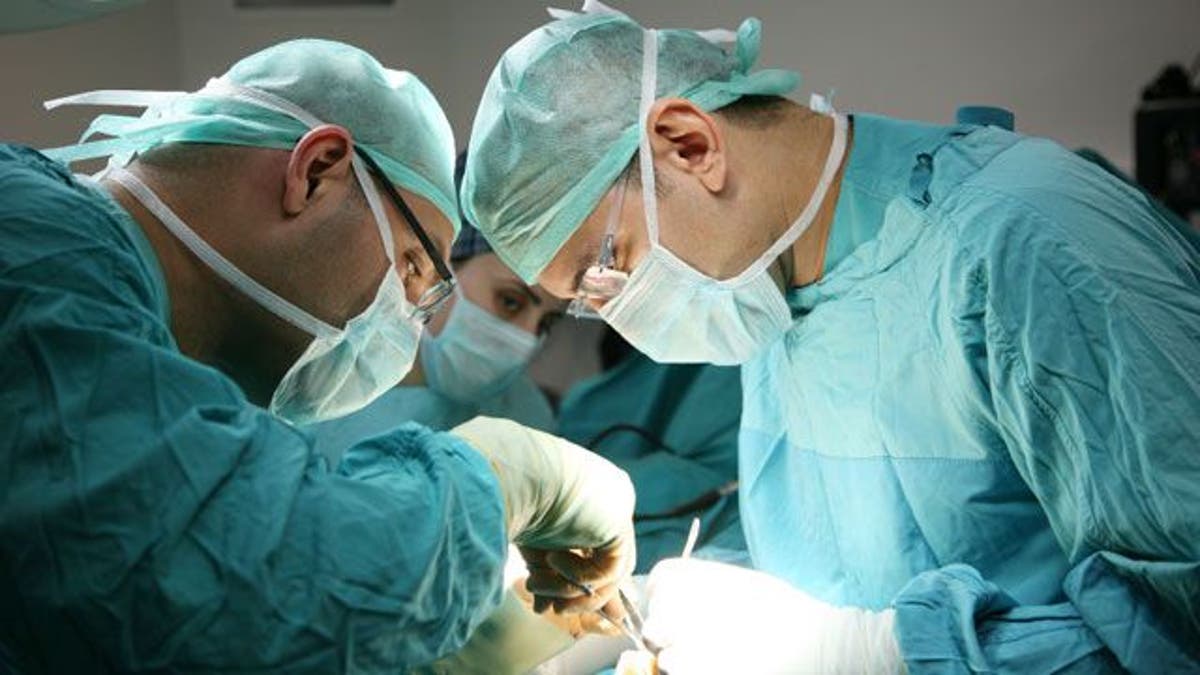
Polish surgeons said Monday they have successfully performed a rare and extensive transplant of the throat area.
Dr. Adam Maciejewski said the 37-year-old patient suffered from advanced cancer of the voice box, making it impossible for him to breathe, swallow and speak. Other parts involved in the transplant included the windpipe, esophagus, thyroid gland with adjacent glands, muscles, nerves, blood vessels and skin.
The patient, identified only as Michal, appeared at the medical team's news conference at the Oncology Center in the southern town of Gliwice, and whispered thanks. He can now swallow liquefied, mushed food. The transplant, from a donor, was performed on April 11 and took 17 hours.
Two similar but less extensive transplants have been previously performed in the world, according to Maciejewski, a professor at the Gliwice clinic.
A transplant surgeon in Sweden who wasn't involved in the Polish surgery said the surgeons "should be congratulated if they have succeeded."
Dr. Bo-Goran Ericzon, a professor at the Karolinska Hospital in Huddinge, Sweden, told The Associated Press the transplant sounded "very unique and advanced, especially if the patient can to some extent produce voice and swallow."
Maciejewski said the recovery was satisfactory, while intensive rehabilitation should eventually allow the patient to "eat, breathe and speak just like we all do."
The dangers of a rejection and infections remain the chief concerns.
In 2001, the man had a kidney transplant and has since been on immune suppressive medication. In 2009, he was diagnosed with advanced voice box cancer. He had his voice box and thyroid gland removed and underwent chemotherapy.
Maciejewski said that since there weren't any signs of cancer recurrence, the patient had a poor quality of life and was already taking medication to prevent a rejection of the transplanted kidney, he was an "ideal candidate" for the extensive throat transplant.
In 2013, his team did a life-saving transplant of almost the entire face on another patient, who has since returned to active life.
